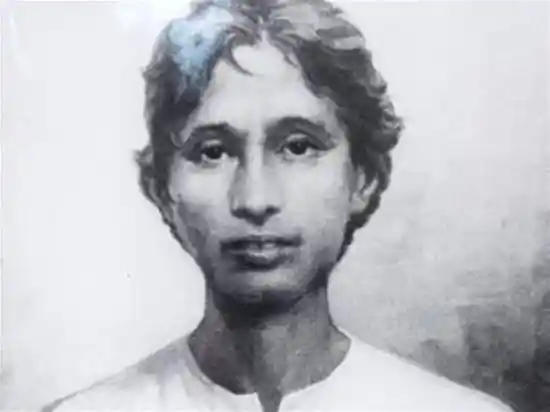Martyred at 18
If you thought that Bhagat Singh was the youngest freedom fighter, you need to get your facts right. The story of Khudiram Bose, a young boy who was executed by the British aged 18, was one of the youngest freedom fighters to be martyred.

One of the youngest revolutionaries of India; Image Source: Deccan Herald
The morning of 11th August 1908 was quite a bitter one in Muzaffarpur, Bengal. Indians had just lost a young and brave freedom fighter, Khudiram Bose, who is said to have died with a smile spread across his face. The smile symbolised sacrifice and patriotism; a feeling that came seldom to people at such a young age.
By the time it was 6 AM, the crowd outside the jail began to swell up. Journalists with their pens and notebooks stood there in anticipation with the common people, who waited for Khudiram’s body to arrive. Everyone wished to pay their respects to the young man, and the funeral procession was to pass by the street. British policemen stood there with barricades, trying to hold the exasperated crowd behind.
However, this could not stop the people from ushering the dead body of Khudiram Bose with flowers, which kept continuing till he was rested in a chariot and taken away. Chants hailing the young man echoed in the atmosphere. Despite the boy’s death, spirits were high as ever because people had the vigour which the young man once possessed when he was alive.
Khudiram was the main character of his life. Born in a small village named Mohobani which was situated in Bengal, he was the fourth child in the Kayastha family. Ironically, he was put through the traditional customs, where the newborn child is sold to the eldest sister in exchange for Khud (three handfuls of rice) to save the kid from dying at an early age. This is how he was named Khudiram.
After losing both of his parents by the time he was 7, his elder sister took the responsibility of raising him. As a very young boy, he began discussing about revolutions and by the time he was 16, he had already been to jail and planted several bombs in British institutions.
The biggest project of his life was the assassination of Kingsford, a British officer. Khudiram took his partner Prafulla along to Mazaffarpur. The young boys began implementing their plans at the first chance they could seize.
On a very cool summer night, Kingsford and his wife were playing the game of Bridge with another British family. Pleasantries were being exchanged over the game of cards on the dinner table.
In the compound of the house hid Prafulla and Khudiram. They were here with a well- structured plan and weren’t going to back down without executing it.
Kingsford looked at his watch, it was 8:30 pm. The couple decided to head back home since it was well after dark. After some chattering, the couple boarded the carriage as their servant opened the door for them. The horse galloped through the compound as it pulled the carriage towards the eastern gate, and before it could make it past the gate, a loud explosion left the carriage in flames and ruins. Khudiram and Prafulla were extremely proud of having pulled this off, they were glad to have laid their hands on the best bombs in town.
What followed was the obvious. Despite several escape attempts, Khudiram was put into custody and Prafulla had lost his life way before in an escape attempt. In court, he gave his statement loud and clear, he did not fear the consequences. He spoke the truth with his head held high.
The judge was in a dilemma. Giving a death sentence to such a young boy did not feel right, but it was the law after all. The judge finally came to the conclusion that Khudiram was to be hanged.
The whole court fell dead silent after a gasp, everyone except Khudiram, was shocked. The young man actually stood with a smile spread across his face.
The Bengali weavers began weaving a special dhoti in his honour, ‘Khudiram’ was embroidered on its side. This name for the dhoti is used even to this day.


